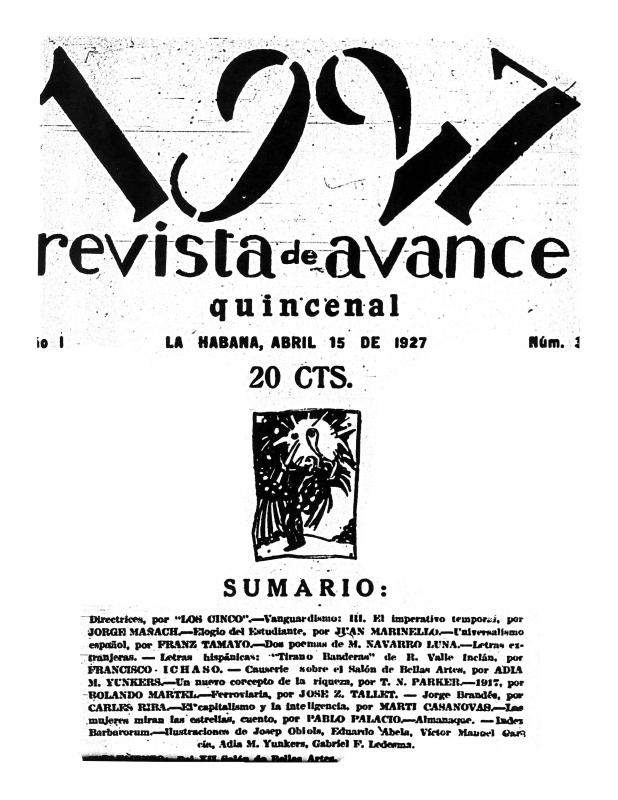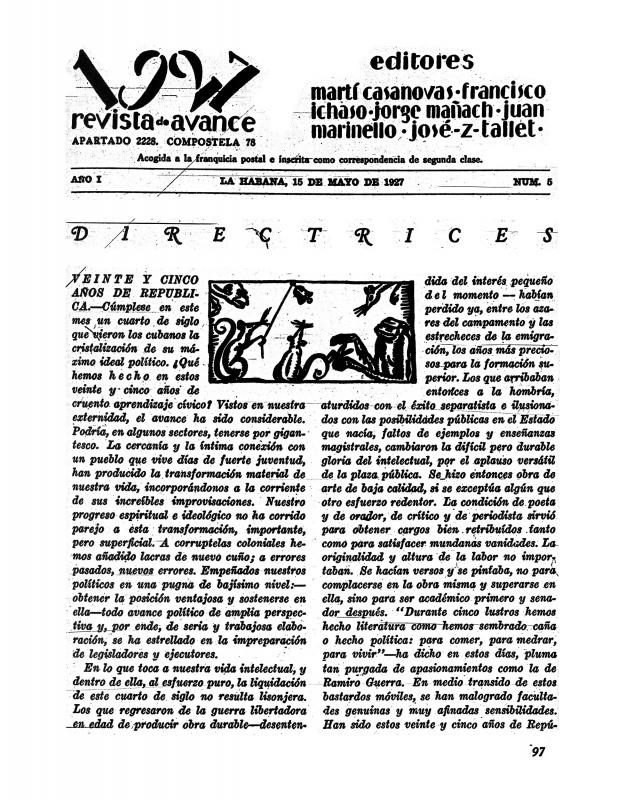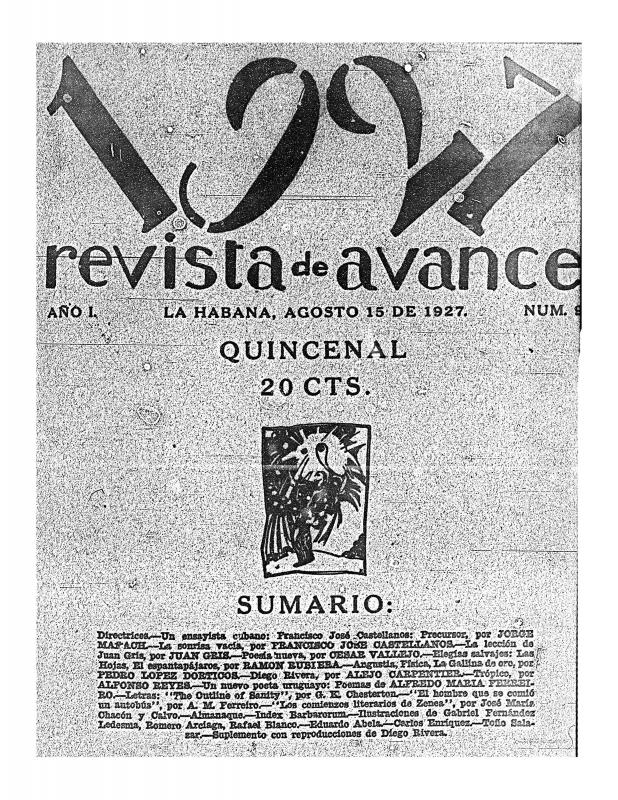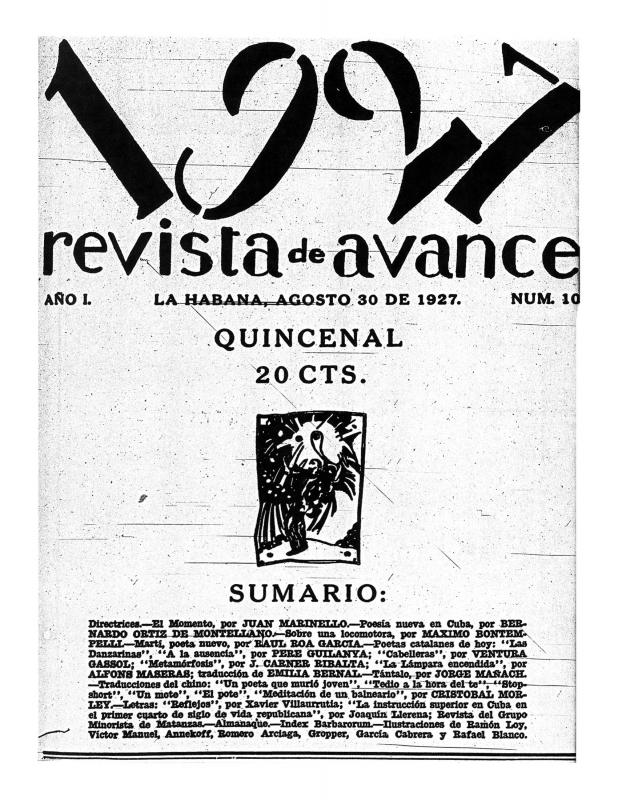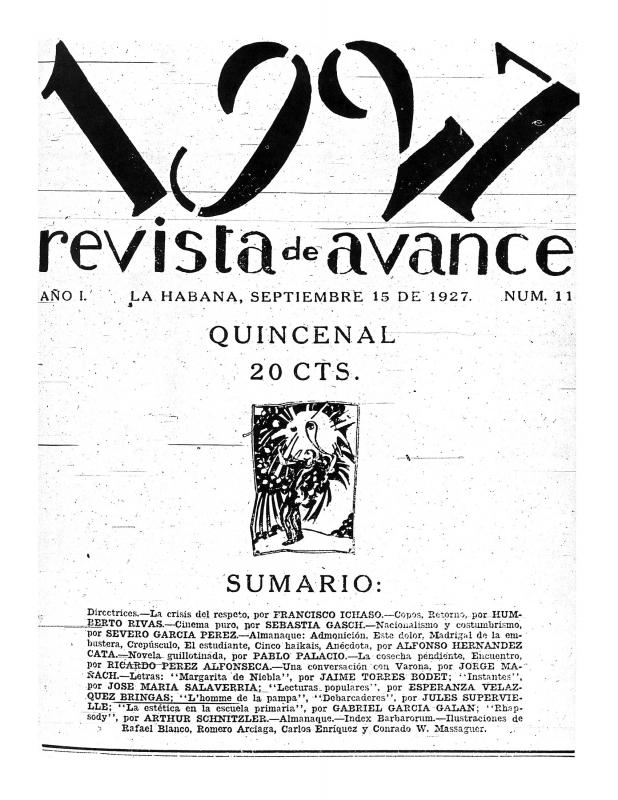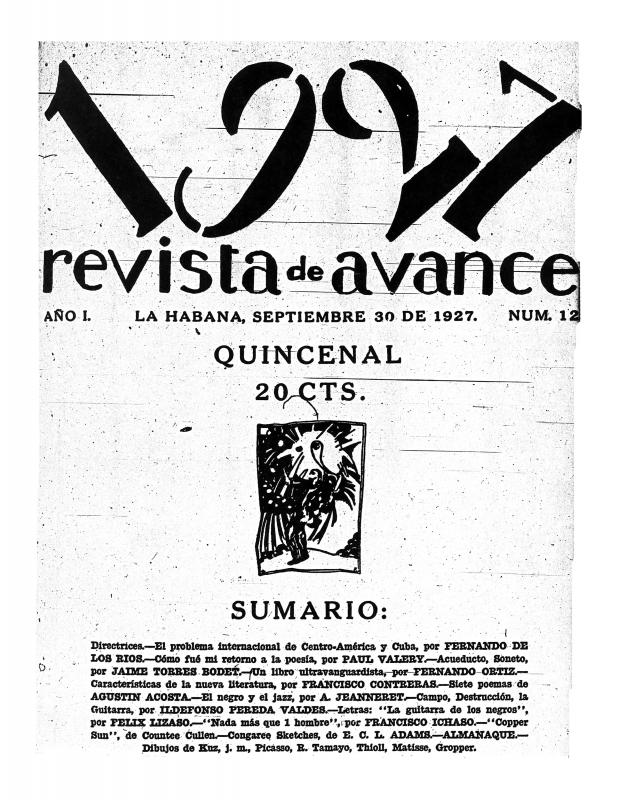In this May 30, 1927 issue of Revista de avance, the “Guidelines” section includes four brief articles. In the first, the editors come out in favor of “art theater” that could be developed by taking inspiration from and following the example of Duvan Torzoff’s company. The Russian theater director presented a show based on the model of “chauve souri” [a touring group that presented a variety show] at the Payret Theater in Havana. This awoke the interest of the group of intellectuals known as Los Cinco. The article reproaches the public at large that responded to the show with a “deafening silence,” while it insists on the importance of the event in the intellectual and art world.
The next short article fiercely criticizes the peace agreement implemented in Nicaragua on May 4, indicating the end of the civil war. After a year-long struggle in which thousands of Nicaraguans lost their lives, the national resistance groups seem to be giving in to the interests of the United States, which threatened a military intervention in the country. This editorial states that the political situation seems to have taken a turn toward exhaustion and capitulation, a position harshly criticized by the avance editors. The article is not very optimistic about the fate of the struggle for independence and anti-imperialism in Latin America. The editors point out that “most of the leaders of the small Indo-Iberian nations have strong economic ties to Yankee power. The masses act in good faith and passion, ruled by a domestic political world that takes orders from their chief, whose job apparently includes flattering Washington.”
The third article calls into question the decision to appoint the academic Dr. Remos to be a visiting professor teaching courses at the University of Mexico. Although they are pleased about the initiative, the editors deem this “appointment” hasty.
The last article discusses and praises the work that has been done recently by the Institución Hispano-Cubana de Cultura, especially as related to the program of lectures and courses offered to the public. However, the article points out the importance of including rigorous lecturers, whose thinking is critical, instead of scientists like Blas Cabrera, whose subjects are not particularly interesting when presented at a culturally-oriented institution. The editors recommend the inclusion of such Latin American lecturers such as Caso, Palacios, Sanín Cano, and Vasconcelos.

